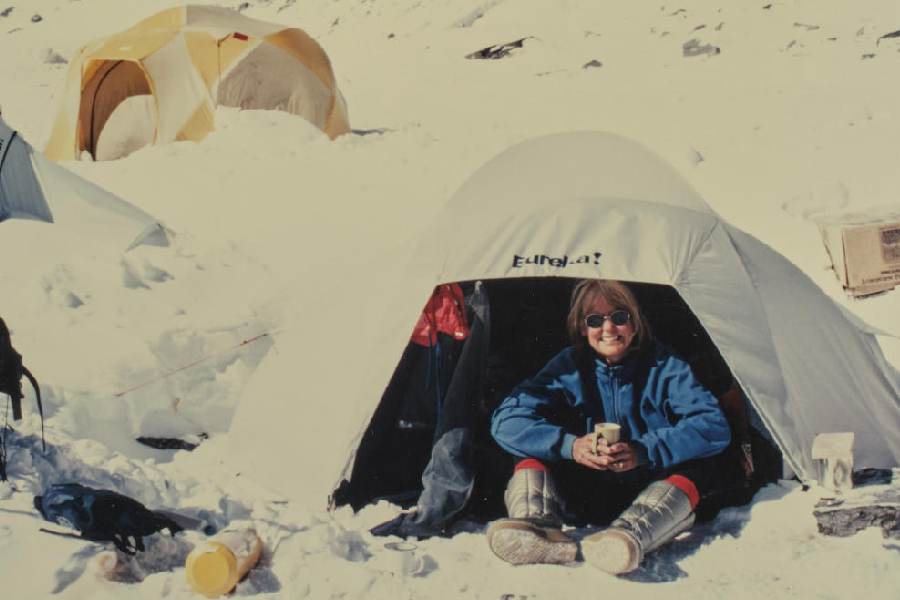Audrey Salkeld, a pioneering historian who mined archives that had been neglected for decades to write about mountains like Kilimanjaro and Everest, which she also ascended, died October 11 in Bristol, England. She was 87.
Her sons Ed and Adam Salkeld said the cause of death, at an assisted living facility, was dementia.
In a tribute, Climbing magazine called Salkeld “the world’s pre-eminent expert in Everest history”.
Her books include First on Everest: The Mystery of Mallory & Irvine (1986, with Tom Holzel), about an ill-fated Everest expedition by George Mallory and Andrew Irvine in June 1924. When Mallory’s frozen remains were discovered on Everest’s slopes in 1999, Salkeld was the expert everyone wanted to speak with. She had even climbed the mountain looking for his body.
That mysterious and deadly peak in the Himalayas, the highest point on Earth, dominated her life and career, her sons remembered in telephone interviews from London. She was fascinated by the men who had dared to take it on and wanted to understand why they had done so.
“It was the eccentric kind of characters that were able to do this,” Ed Salkeld said. “That was what interested her.”
Audrey Salkeld carved out a singular place in the field in Britain, where mountains and mountaineering have had a particular pull, bound up with the country’s imperial history and its 19th-century fascination with the Alps.
Researching Mount Everest, she trawled 56 boxes of forgotten archives at the Royal Geographical Society in London, reconstructing the early expeditions and bringing to life mysterious figures like Mallory. For decades mountaineers had been haunted by the question of whether he had reached the summit, which would have made him the first, ahead of Edmund Hillary in his 1953 ascent with Sherpa Tenzing Norgay (sometimes spelled Norkay). Salkeld was unable to solve the mystery, though she remained a deeply informed sceptic.
“Mallory had always been portrayed as a sort of heroic figure,” she told the BBC, “and a lost hero always has a little bit more attraction.”
David Breashears, a climber with whom Salkeld collaborated on films about Everest and Kilimanjaro, in Tanzania, recalled that her modesty had led people to underestimate her considerable talents.
New York Times News Service











